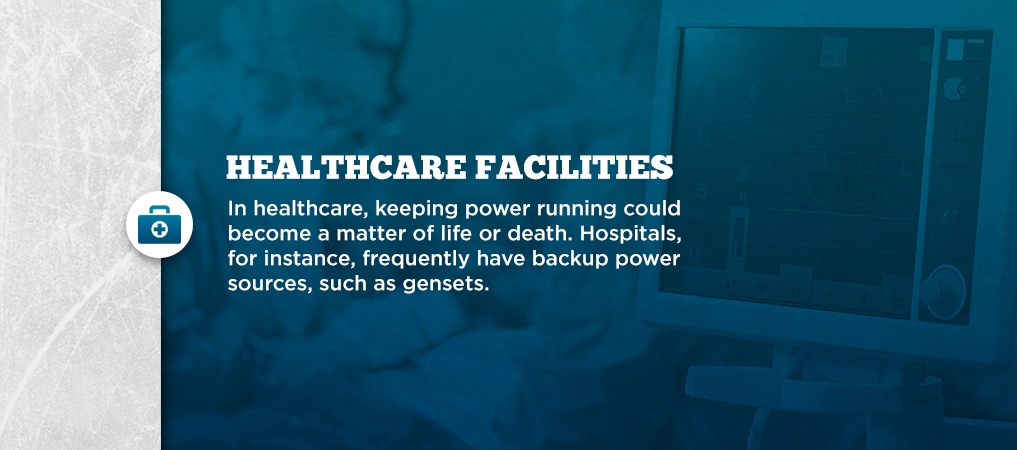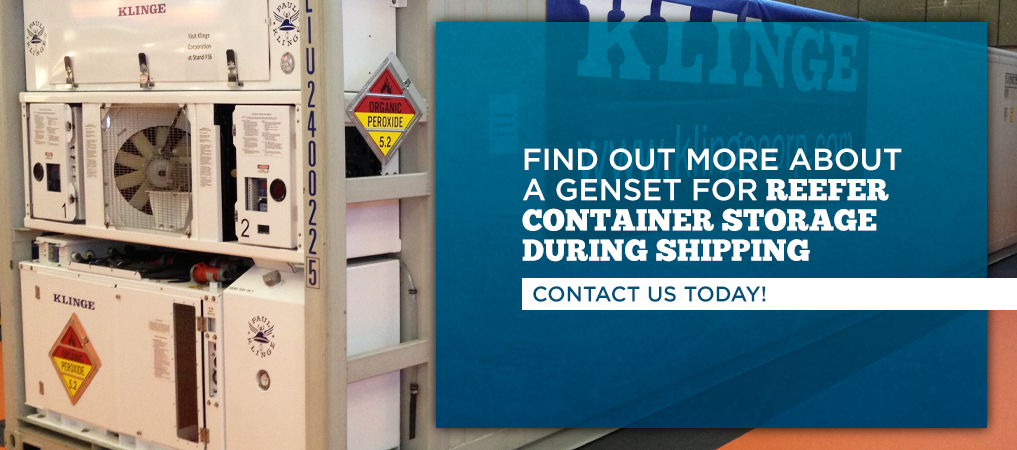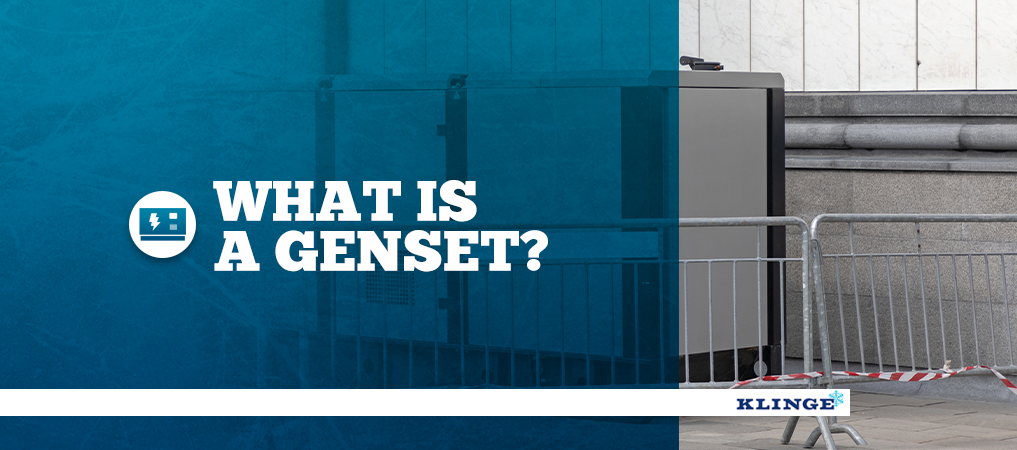For situations that require powered engines in remote locations and during inland transport, a genset offers the solution. Several industries use gensets for fulfilling their remote power and transport power needs, including the shipping sector. Gensets are vital components of refrigerated reefer containers to maintain safe temperatures for long land/truck voyages. Understanding the importance of these devices and how they work will make it easier to appreciate how vital they are for shipping services.
Table of Contents
What Is a Genset?
What does genset mean? The term genset is an abbreviation of generator set, which refers to a generator and engine combination. The definition of a genset container is an engine that drives the generator, which provides the power used to run other equipment. Depending on the application, the genset may run construction equipment, appliances, cooling systems or other devices.
Each genset consists of two main components, the generator – or alternator – and the engine. The engine runs on fuel and drives the generator, which in turn provides electricity to run other equipment. Typically, large gensets such as those used in transport use diesel fuel, though they can often also run on JP-8 fuel.
An ideal genset should be reliable. These power sources often provide reserve power in case of local outages or during travel when local power is no longer available — so you need to know they are going to work as needed.
Also, due to their operation in remote places and possibly tough conditions, gensets must have a robust construction that will stand up to the elements. Low-emissions are another bonus of some gensets, but as with every type of engine, gensets require adequate ventilation, no matter where someone operates them.
How Does a Genset Work?
The genset’s operation starts with its engine. Typically, diesel fuel powers these. The engine burns the fuel, which creates rotational energy that powers the generator and allows the generator to provide electricity. Rotational energy transforms into electricity by spinning a coil through a magnetic field. When the generator connects to an electrical load, the voltage created passes to the load to drive it.
For diesel gensets, the units run as long as the fuel lasts. Therefore, these types of completely portable generators require a steady supply of fuel. The advantage of these gensets, though, is their ability to go anywhere and provide electricity, even in places that do not have a connection to a power grid.
What Are Gensets Used for?
Several industries require gensets to provide power and backup electricity. Gensets are also used to keep refrigerated loads cold during road transport when shore or vessel power is not available. Reasons for needing the gensets depend on the operations and location of a business. In fact, many applications of gensets do not have an application in a single industry but can have applications across many sectors that have shared purposes.
Data Centers
Data centers require constant power to ensure uptime of their servers. Power outages can impact server availability. For companies that have in-house servers, those outages could result in lost productivity. Companies that host servers for others will lose business if a power outage impacts their servers.
For data centers and any other businesses that require constant power for their technology, gensets prevent lost business and productivity.

Healthcare Facilities
In healthcare, keeping power running could become a matter of life or death. Hospitals, for instance, frequently have backup power sources, such as gensets. These types of power sources provide electricity if a storm or area blackout causes electrical problems.
For these types of facilities, the generators may connect to a natural gas supply to ensure an unending supply of fuel from the local gas lines. These types of generators do not require refilling with fuel. They can also automatically turn on when the main power shuts off.
Emergency Power Operations
Backup power for businesses in emergencies can keep them running. This type of backup power can allow for operations to continue after storms for essential operations. For instance, emergency departments or news stations that need to keep operating in critical situations to keep the population informed may require backup generators. Even farms might require backup generators to provide power for incubators, ventilators and other support systems for keeping livestock safe and healthy.
Power in Remote Locations
In remote locations not connected to the power grid, gensets can offer a way of getting electrical power. Examples include rural mountainous regions or even remote island locations. Gensets can help emergency response teams offer assistance in areas after a natural disaster. Military operations in locations without access to a power grid can also use a genset to run necessary equipment.
Power for Cooling or Heating Units on Reefer Containers
Gensets are also extremely useful with reefer containers. Many ships will have a power source for cooled or heated reefer containers. However, for highly sensitive materials that could spoil outside of a set temperature range, gensets provide a backup means of powering the heating or cooling units on the reefer. When shipping cargo that has posed a hazard from a cooling power disruption, the reefer may include redundant gensets, one as a backup to the other.
How to Operate a Genset
The correct way to operate a genset depends on the model. Some will have automatic or remote starting capabilities, especially those used for backup power. On ships, reefers will use the electrical power from the ship for cooling. Some reefer containers can even have a pair of gensets, like some systems from Klinge Corporation. if one of those fails, the backup genset will start. Therefore, the integrity of the reefer container remains protected, even in extreme conditions.
This type of cooling system from Klinge Corporation successfully transferred delicate ice cores from Antarctica north to the United States and across the deserts of the American southwest. During the month and a half-long journey, the ice cores remained below -20 degrees Celsius (-4 degrees Fahrenheit) the entire time.

Find Out More About a Genset for Reefer Container Storage During Shipping
Gensets allow for overseas shipping of temperature-sensitive materials. An option with each of our freezer and refrigerated shipping containers is a reefer container genset to operate the refrigeration unit to maintain the ideal storage conditions inside throughout the delivery process.
If your business needs shipping containers to maintain a specific temperature, the reefers will need gensets included. For more information on reefers or our other products, such as tank containers, freezer shipping containers, and pharmaceutical containers, talk to one of our specialists at Klinge Corporation to identify which type of container you need. If you already know your shipping requirements, feel free to request a quote from us.

